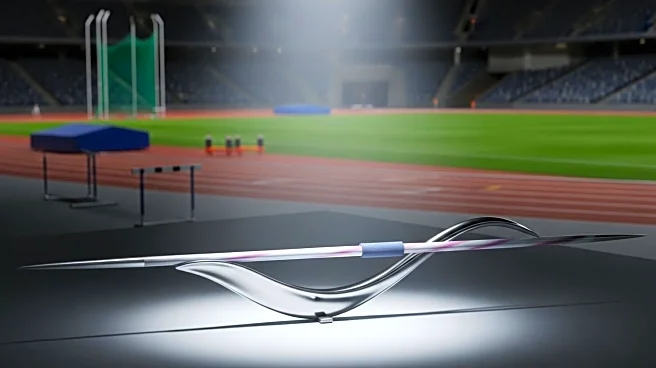What is the story about?
What's Happening?
Mackenzie Little, an Australian athlete and doctor, achieved a bronze medal in the javelin event at the World Athletics Championships. Her first throw of 63.58 meters secured her position on the podium, only surpassed by Ecuador's Juleisy Angulo and Latvia's Anete Sietina. Little's achievement comes after a challenging year where she struggled to surpass the 60-meter mark. Despite her demanding schedule, which includes working night shifts at Royal North Shore Hospital in Sydney, Little managed to perform exceptionally well. Her dual career as a doctor and athlete has been physically and emotionally taxing, yet she remains committed to both professions.
Why It's Important?
Little's success highlights the challenges and triumphs of athletes who balance demanding careers alongside their sports commitments. Her story is significant as it underscores the dedication required to excel in multiple fields simultaneously. This achievement not only brings attention to her athletic prowess but also to the broader conversation about work-life balance, especially for those in high-pressure professions. Little's ability to secure a medal despite her rigorous schedule serves as an inspiration to many who juggle similar responsibilities.
What's Next?
Looking ahead, Little will continue to balance her medical career with her athletic pursuits. Her performance at the championships may open up further opportunities in athletics, potentially leading to sponsorships or increased support. Additionally, her story may inspire discussions on how athletes can be better supported in managing dual careers. The Australian team, having secured three bronze medals, will aim for more successes in the final day of the championships, with several athletes still in contention for medals.
Beyond the Headlines
Little's journey raises important questions about the support systems available for athletes who pursue careers outside of sports. It also highlights the potential for burnout and the need for mental health resources for those in similar situations. Her story could lead to increased advocacy for flexible work arrangements and better support networks for dual-career athletes.
















